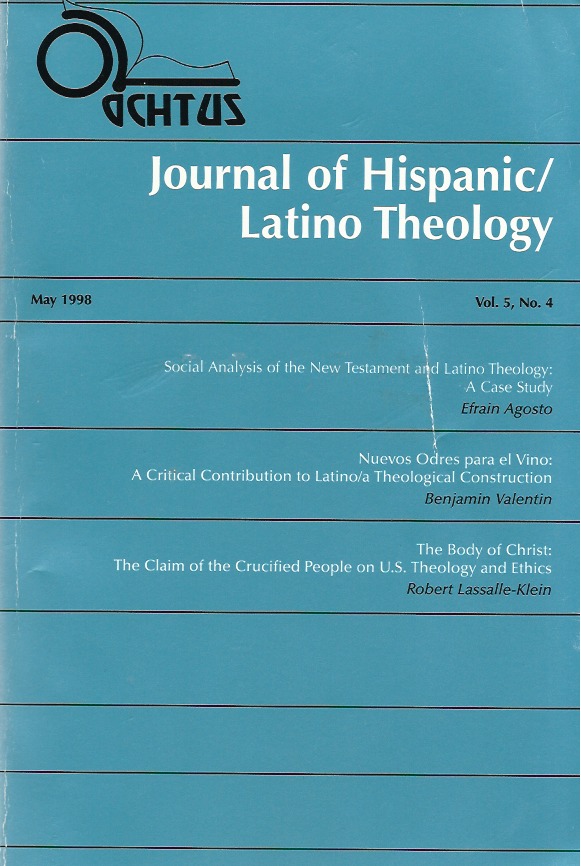Volume 5, Number 4 (1998)
Acts of the Apostles: Theology Addressing the Broader Public
In his 1993 BBC Reith Lectures, subsequently published as Representations of the Intellectual (New York: Random House, 1994), literary and cultural critic Edward Said writes:The intellectual does not climb a mountain or pulpit and declaim from the heights. Obviously you want to speak your piece where it can be heard best; and also you want it represented in such a way as to influence with an ongoing and actual process, for instance, the cause of peace and justice. Yes, an intellectual's voice is lonely, but it has resonance only because it associates itself freely with the reality of a movement, the aspirations of a people, the common pursuit of a shared ideal. ... Speaking the truth to power is no Panglossian idealism: it is carefully weighing the alternatives, picking the right one, and then intelligently representing it Where it can do the most good and cause the right change (101-2).
In many respects, what Said says of the intellectual applies equally well to the theologian. His sage advice about the care with which intellectuals must choose their words and discern the most appropriate and effective venues for those words should resonate profoundly in those who teach, write, and publish theology. As we reflect in this vein on the place and the purpose of this theological journal on the university library shelf, on the
For theologians who write from the U.S. Hispanic American perspective, and whose words appear in these pages and elsewhere, neither mountaintop nor pulpit constitute privileged vantage points, either for the sort of listening that makes it possible for us to hear with understanding, or for the sort of speaking that makes a real difference. All three contributions to this issue of the Journal of Hispanic / Latino Theology also raise their eyes and voices toward the future, both in active interest in the future of theological education and reflection among U.S. Hispanic Americans, and in deep concern for the future of U.S. Hispanic American communities.
Dr. Efrain Agosto (Ph.D., Boston University), author of “Social Analysis of the New Testament and Hispanic Theology: A Case Study," is professor of New Testament and director of the Programa de Ministerios Hispanos at Hartford Seminary. Dr. Agosto, whose commitment to U.S. Hispanic American theological education is demonstrated through his participation as a faculty mentor for the
Benjamín Valentín, a Ph.D. candidate at Drew University, Madison, New Jersey, whose area of research interest is public theology, contributes “ ‘Nuevos Odres para el Vino’: A Critical Contribution to Latino/a Theological Construction.”

In his contribution to this issue, "The Body of Christ: The Claim of the Crucified People on U.S. Theology and Ethics,” Dr. Robert Lassalle-Klein (Ph.D., Graduate Theological Union), assistant professor of field education and systematic theology at the Jesuit School of Theology at Berkeley, reminds us of the binding claim that those the late Ignacio Ellacuria called “the crucified people” make on all of us. The crucified people are,

Taking up Edward Said’s words once again, the voices of the theologians whose work we present in this issue of the journal resonate deeply and broadly because they associate themselves with "the aspirations of a people,” in the "common pursuit of a shared ideal.”
— Jean-Pierre Ruiz
St. John's University, Jamaica, N.Y.
Editorial
From the Editor
Jean-Pierre Ruiz
Articles
'Nuevos Odres para el Vino': A Critical Contribution to Latino/ a Theological Construction
Benjamín Valentín
The Body of Christ: The Claim of the Crucified People on U.S. Theology and Ethics
Robert Lassalle-Klein

Editors (vol. 5 no. 4)
- Editor
- Jean-Pierre Ruiz
- St. John's University, New York
- Associate Editor
- Alejandro García-Rivera
- Jesuit School of Theology at Berkeley

